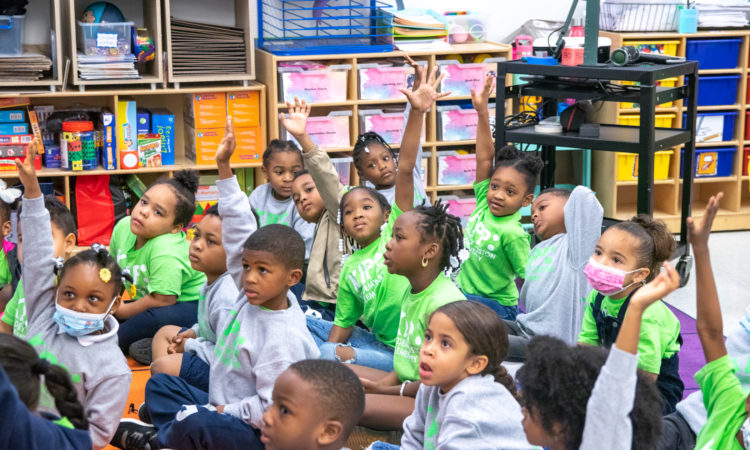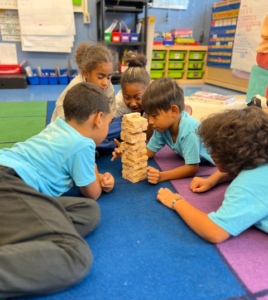
(December 2022) On the first day of school, at the start of the school day, students in Ms. Ny’s 2nd grade class were asked a simple question: “How are you feeling today?” First day of school jitters were released, excitement was shared, and many students vocalized that they were thrilled to be back in school and alongside friends and teammates from their 1st grade year. Though some of these students may have known each other, the group dynamic was completely new. New desks, new spots on the rug, a new teacher, and for some, an entirely new school- but that was all put at ease with the question “How are you feeling today?”
Classrooms across KIPP Massachusetts start their day this way. It is a small, yet successful, way to build community and to let students know that their feelings matter and teachers and staff at KIPP Massachusetts care about those feelings.
In the years following the COVID-19 pandemic, part of addressing unfinished learning meant meeting students where they were mentally and emotionally. When planning for the 2022-2023 school year, school leaders and leadership teams across the region agreed that focusing on the whole child’s ability was what would lead to the greatest success in prioritizing how unfinished learning caused by the pandemic would be addressed.
The Whole Child Academic Initiative ensures that teachers at KIPP Massachusetts are teaching to every part of every child, because we know that education does not start or end with academics alone. This holistic approach to education allows teachers and staff to be able to address the mental health needs of students while recognizing that Social Emotional Learning is engrained in the entire learning experience.
Social Emotional Learning is at the core of every classroom across KIPP Massachusetts because, as Executive Director Nikki Barnes shares, “It is at the heart of everything we do.” KIPP Massachusetts has 17 licensed mental health counselors across the region, who work with students on a 1 to 1 basis if needed, crisis check-ins, and as a listening ear, but the work of Social Emotional Learning spreads across the region and the overall school experience. This means that students at KIPP Massachusetts are experiencing Social Emotional Learning (SEL) all throughout their day. For our younger learners, this can look like building community every morning and afternoon in opening and closing circles, where students are given the opportunity to share how they’re feeling or share a shoutout when they witness a classmate in an act of kindness. For our older learners, they are able to establish the same sense of community in their Advisory time, when they meet with a teacher and a small group weekly to spend time together, discuss happenings around the school, and use each other as a sounding board for questions.

Play Based Learning, implemented in K-2 classrooms in Boston and Lynn, is a type of learning that was implemented at KIPP Massachusetts to help support Social Emotional Learning. Play Based Learning is the philosophy that our youngest learners can retain valuable lessons from playing alongside their peers. This can look like Play-Doh sculptures, board games, educational computer activities, or dramatic play. While the students engage in Play Based Learning, they are actively participating in Social Emotional Learning because they are developing skills such as conflict resolution and learning how to regulate emotions as they arise. By implementing Play Based Learning across the region, teachers and staff are able to help address Social Emotional Learning gaps caused by the COVID-19 pandemic.
For our older learners, they participate in the practice of goal setting. Through the online platform, Aperture, students are able to track goals. School counselors are also able to use Aperture to assist in Mental Health screening, to better identify students who need more frequent or robust support. The goal is to have this 100% in place by 2027. The Dean and Leadership teams across the region are also focusing less on punishments or consequences and more on getting to the root of why a student may have acted the way that they did. Prioritizing a conversation rather than an immediate consequence allows for responses to behavior to be more individualized and targeted to best address a student’s needs.
The priority placed on Mental Health and wellbeing at KIPP Massachusetts ensures that students and staff are set up for success. By implementing programs such as Play Based Learning and goal setting, students are able to feel a direct connection to Social Emotional Learning, while teachers and staff continue to provide support and resources necessary to ensure that all KIPP MA students have A Future Without Limits.